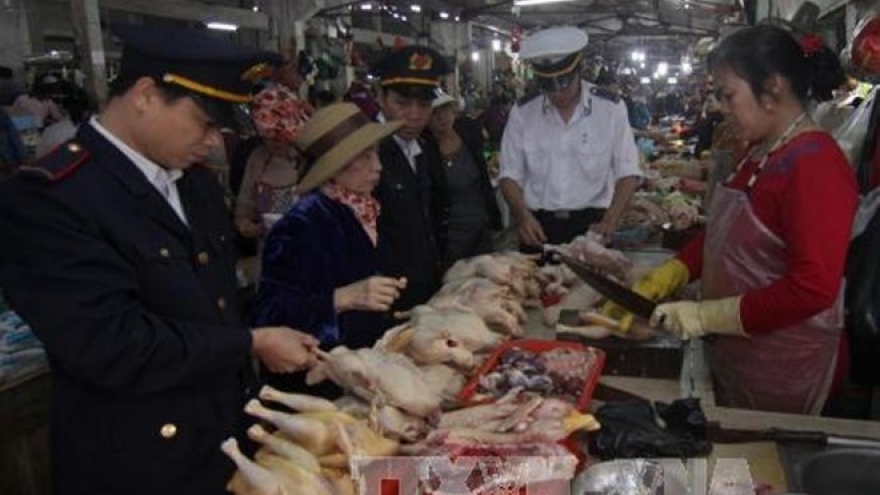Vietnamese firms push food safety
More and more livestock farming companies are adopting VietGap and Global Gap standards to improve their efficiency as well as ensure food safety, according to global quality certification agency Bureau Veritas.
 |
| Johan den Hartog, managing director of GMP+ International, speaks at conference on food safety of meat products in Vietnam in HCM City on March 23. (Source: VNA) |
Speaking on the sidelines of the “Conference of dialogue and associating to improve the food safety chain of meat products in Vietnam” in HCM City on March 23, Nguyen Thi Thanh Huong, food business development manager at Bureau Veritas Vietnam, said “Food safety in Vietnam has seen some improvement recently.”
In the past livestock farms did not known much about VietGap or GlobalGap, but now many businesses have applied and plan to apply these standards at their farms, she said.
Johan den Hartog, managing director of GMP International, a global leader in animal feed certification, said there is a growing trend among food producers in Vietnam to supply quality products to both the domestic and export markets.
“To supply safe food to consumers, all companies in the chain need to work together,” he said.
He appealed to feed companies to obtain GPM certification saying they are a critical part of the food supply chain in ensuring the safety of end products like meat, milk, and eggs.
GMP Feed Certification began as a national scheme in the Netherlands in 1992, but has grown into a global scheme that is managed by GMP International in collaboration with various international stakeholders, he said.
He also referred to GMP Country Note for Vietnam, which seeks to enable companies comply with GMP requirements and also local laws.
In Vietnam, there is growing interest in complying with international quality standards, and that is why GMP International developed the current GMP Country Note for Vietnam, he said.
Vietnam is one of the biggest industrial feed producers in Southeast Asia. But 80% of the ingredients used in production is imported.
A substantial part of the imported feed ingredients could be produced by GMP FSA (feed safety assurance) certified companies or can be purchased using standard gatekeeper protocols, den Hartog said.
Every company and transport and storage service providers in the GMP feed chain should control possible hazards and risks to prevent contamination of feed products, he said.
He hailed the Vietnamese High Quality Goods Business Association for its efforts to develop Vietnamese High Quality Products-Global Integration Standards (GIS) with measures to monitor the whole food supply chain.
Vu Kim Hanh, Chairwoman of the High Quality Vietnamese Goods Business Association, said 66 Vietnamese firms have obtained GIS certification.
The association has signed an agreement with GMP International, under which GIS would link with GMP FSA to ensure safety of animal and fish feed, she said.

